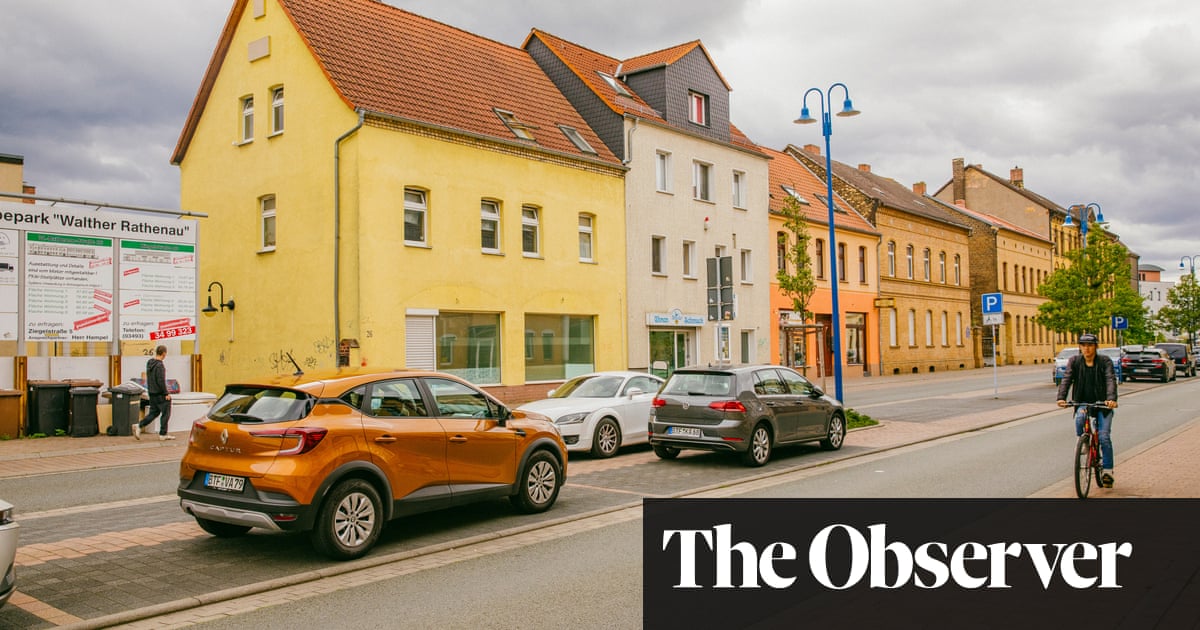deleted by creator
Money talks, Nazis don’t have integrity.
Bitterfeld-Wolfen, 140km south-west of Berlin
I really hope for the people that this will bring some solid jobs to the area. I visited Bitterfeld in May, and it’s pretty rough in some places. You can tell how many jobs were lost after the wall came down.
A picture of Wolfen Nord, where many dwelling units were already demolished, leaving people without neighbours and local infrastructure:

Sachsen-Anhalt is Berliner Umland now. Already heard someone say “Magdeburg bei Berlin”
deleted by creator
And, did the poster your replied to say anything otherwise? It is south west of Berlin. Berlin is not the border of East Germany. Well, technically part of it was, but you get the point.
What’s with the rumors (?) about sodium batteries? When they work and are much cheaper, who needs lithium in the foreseeable future?
Their theoretical energy density are half of what lithium achieves. While their price and ecology probably makes sense in some cases, good luck marketing an ev with half the range, or a cellphone that lasts half a day.
I haven’t been following them, but my understanding is that as well. However, I would point out that they may free up some lithium for EV use from uses where energy density is less important.
rumors
Afaik, there are many experiments and ventures on energy storage, like natrium, Solid State etc. But at the moment they aren’t vialable for commercial, technical or production reasons . Lithium as an element has unique storage & cycle properties, as I understand it. You need more energy and space for natrium battery in cars, which won’t make them usable for now.
Then again, tomorrow may come a breakthrough, but this is what we’ve been hearing for many years. So it seems they will stick with lithium.
BYD demosntrated the BYD Seagull using a natrium battery. It is certainly not completly crazy to use it.
We have a lot of experience with Lithium in production, we have close to zero experience with other battery technologies.
It took Lithium 15-20 years to get from research to large scale use in cars, so you can expect the same for other technologies
This is the best summary I could come up with:
Deep inside a former East German town lies the first fruits of the EU’s grand plan to “de-risk” and wean itself off dependency on imports for the green revolution.
There is now a race across Europe to both mine the silver-white soft metal and manufacture its refined form, lithium hydroxide – the key ingredient in the batteries that power electric cars, robot vacuum cleaners and mobile phones.
The EU is in a hurry, having come to the late realisation that it is over-reliant on China for a host of critical raw materials, 16 of which are now listed by Brussels as priorities in a new industrial strategy designed to protect the bloc’s economy and achieve the ambitious goal of reducing net greenhouse gas emissions by at least 55% by 2030.
Concern is so great that the European Commission president, Ursula von der Leyen, has launched an anti-subsidy investigation into Chinese imports, amid fears that big manufacturers including Volkswagen and BMW will have trouble matching the supply of electric cars from China.
Rare-earth materials were once found in abundance in the US, Europe and Japan, but investors in these regions retreated from mining, which was seen as a dirty and expensive industry, handing a huge market to China, which set about buying the world’s stock to become the global hub it is today.
Before a trip to Latin America to tie down deals on raw material production, Von der Leyen told reporters that the EU had “a 97% dependency where lithium is concerned on China”.
The original article contains 1,413 words, the summary contains 254 words. Saved 82%. I’m a bot and I’m open source!








